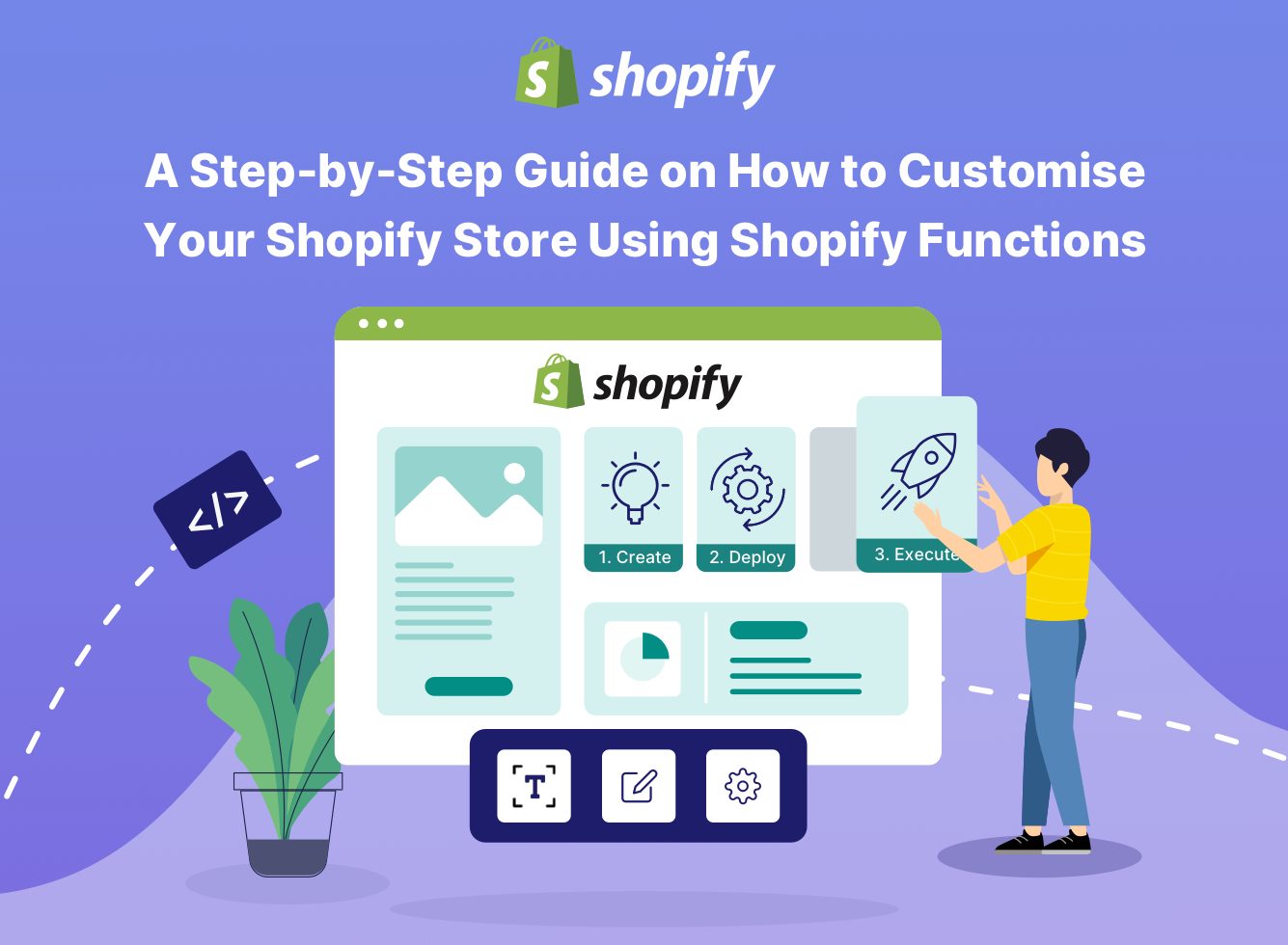A Step-by-Step Guide on How to Customise Your Shopify Store Using Shopify Functions

Shopify Functions are lightweight, event-driven pieces of code that help you automate tasks related to managing your store. They are designed for quickly integrating third party services or creating custom logic for your storefront. Functions can be triggered by events such as new orders, customer signups, or product updates.
With the introduction of functions, it provides store owners and agencies the ability to enhance their Shopify stores with custom logic. Functions provide a powerful way to build, manage, and customise the user experience of your online shop.
How do Shopify Functions Work?
A Shopify function works in a relatively straightforward way. Each function is triggered by an event, such as a new order or customer signup. When the event occurs, Shopify sends a request to the function with all the relevant information about the event. The function then runs your custom code, performs any actions you have specified, and returns a response to Shopify.
For example, if you wanted to trigger a custom action when a customer signs up for your store, you could write a function that provides an automated discount for new customers. This type of customisation is made easy by the introduction of functions.
Functions can be installed directly into your Shopify store as an app, meaning that merchants can add and manage them without having to install or configure any code. Once installed, the function can be configured directly in the Shopify admin dashboard. If you’re working with a Shopify web development team, they can build custom functions and deploy them to the store using the Shopify CLI.
The Shopify Functions Lifecycle Explained
The Shopify functions lifecycle can be broken down into three distinct stages:
- Create: A Shopify web development team creates a new function in the form of an app. This app can then be distributed to merchants and store owners via the Shopify app store.
- Deploy: Merchants download and install the function. They can get the function up and running themselves by configuring it through the Shopify Admin dashboard.
- Execution: Customers interact with the Shopify store, causing events that trigger and execute the new function.
As an example, let’s look at a fictional Shopify Function called “Free Shipping Offer.” This function is designed to automatically apply a free shipping coupon code when a customer reaches a certain cart total.
The Create stage of the Shopify functions lifecycle would involve writing the code for the function and packaging it into an app that can be installed on Shopify stores. Once merchants have installed it, they can move to the Deploy stage where they configure and customise the function in the Shopify Admin dashboard. Finally, when customers enter the store and reach the cart total specified in the function, it is executed, and their order is granted free shipping.
What are the Benefits of Shopify Functions for Merchants and Developers?
Functions are an excellent way for merchants to extend the capabilities of a Shopify store without having to write custom code. And even for developers, Shopify Functions can be a powerful tool for automating and streamlining development tasks. Let’s explore some of the benefits of Shopify functions below.
Simple for Merchants to Use
Not every store owner or merchant has the resources to hire Shopify developers to customise their store. Functions are a simple, low-cost way for merchants to gain access to additional features and capabilities. Functions can be installed quickly, configured easily, and start offering immediate benefits.
Highly Accessible
Functions allow merchants to add custom logic and automation just by downloading an app from the app store. This makes functions accessible to every store owner, even ones on basic Shopify plans.
Extra Advantage for Shopify Plus Merchants
The ability to write and distribute new Functions is exclusive to Shopify Plus merchants. So, this gives another huge advantage to merchants on the Shopify Plus plan.
For example, if a Shopify Plus merchant wants to create a function that automatically provides customers with discounts based on their purchase history, they can ask their Shopify web development team to create a custom Function that can be installed and configured directly in the Shopify Admin dashboard. This is great for merchants that have very niche requirements that can’t be fulfilled using existing apps on the app store.
How Are Functions Built?
A Shopify function is constructed using three key components as shown below.
Flexible UI
Developers use App Bridge or React to create a flexible UI for the function. This allows merchants to configure and customise the function easily from their dashboard without any coding knowledge.
Data storage and configuration
The function requires a data store to configure and save settings. This can be achieved using metafields, which provide a way for Shopify web development teams to store and retrieve data associated with the function.
Backend logic
This is the code that executes the function when it is triggered by an event. Once it is written, it can be deployed and tested using the Shopify development tools.
Functions are a robust, easy-to-use tool for Shopify store owners and developers alike. By taking advantage of the Shopify functions lifecycle and understanding how to use the components, merchants and developers can unlock powerful new capabilities for their Shopify store.
What Can You Do with Functions?
Shopify allows functions to be created to carry out a variety of custom discount and automation tasks. Here are some examples of what you can do with functions now and what will be possible in the near future.
Shopify Discount API (Available now)
You can create discounts that are automatically applied at checkout, based on custom criteria such as product type and quantity. Some stores use this to offer loyalty discounts or discounts based on the total cart value.
Shipping Customisation API (Coming Soon)
This feature is not available yet, but it will allow Shopify store owners to create custom shipping rules and calculations depending on the products in their cart. This way, merchants will be able to offer shipping options based on niche parameters such as eco-saving or express delivery.
Payment Customisation API (Coming Soon)
While also not available yet, this API will allow merchants to customise payment options for their customers. For example, you could offer custom payment plans or interest-free payments.
Shopify Functions - a Powerful Tool for Shopify eCommerce Development
Functions offer a powerful, accessible, and cost-effective way for merchants to add extra features to their store. Store owners and developers can build custom features quickly and easily, and then deploy them with just a few clicks. With the upcoming APIs and continuous development of Shopify Functions, they are sure to become an essential part of any Shopify store’s development process.
If you are thinking about adding extra features to your store, hire Shopify developers from Vsourz to take advantage of Shopify Functions and extend the capabilities of your website. Our Shopify agency has the experience and expertise to build custom functions that will help you maximise your Shopify store’s potential. Get in touch with our expert team today.





